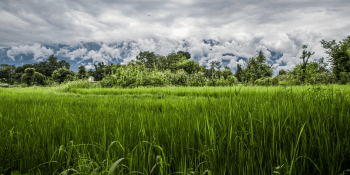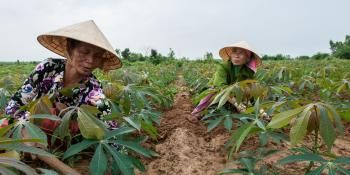Engaging the private sector for a climate-smart future in Nepal
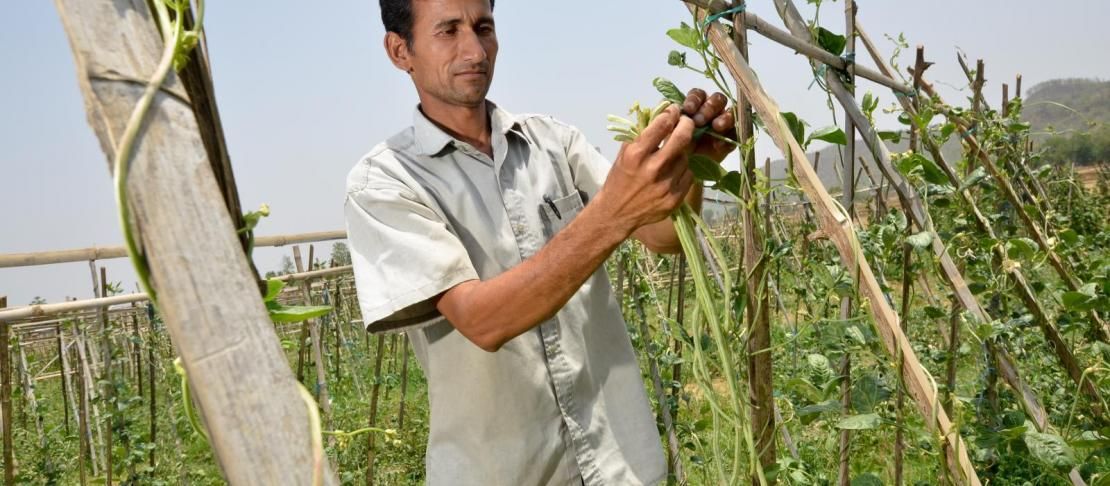
It is critical for small-holder farmers who practice climate smart agriculture to gain access to markets. A new project in Nepal aims to scale up CCAFS Climate-Smart Village model by linking farmers to agriculture industries dealing with major crops like rice, maize and sugarcane.
Our climate-smart village model in South Asia is all set to be scaled-up by partner organisations in Nepal. Through a unique project with the private sector, farmers will now be linked to the agriculture industry and gain access to markets.
Setting the scene- farmers’ reality
Rupendehi in the Terai region of Nepal has been selected as one of our research sites. Annual rainfall in Terai has been declining together with an increase in inter-annual and spatial variability, accompanied by frequent drought and flood events. Unless farmers adapt to climate change, it can impact the production of rice, wheat, maize and sugarcane - all major crops in the region. Need less to say this will have grave consequences on the food and livelihood security of millions of people living in the Terai.
A study of the agribusiness sector conducted by the International Finance Corporation (IFC) of the World Bank Group, in 2012, revealed that sugarcane and rice are among the most vulnerable crops in Nepal, as they are highly dependent on water for cultivation.
Learning how to cope with climate-associated risks and how crops will be affected by progressive global climate change, are essential pre-conditions for facilitating investment and generate transformational and sustained growth in the agricultural sector in Nepal.
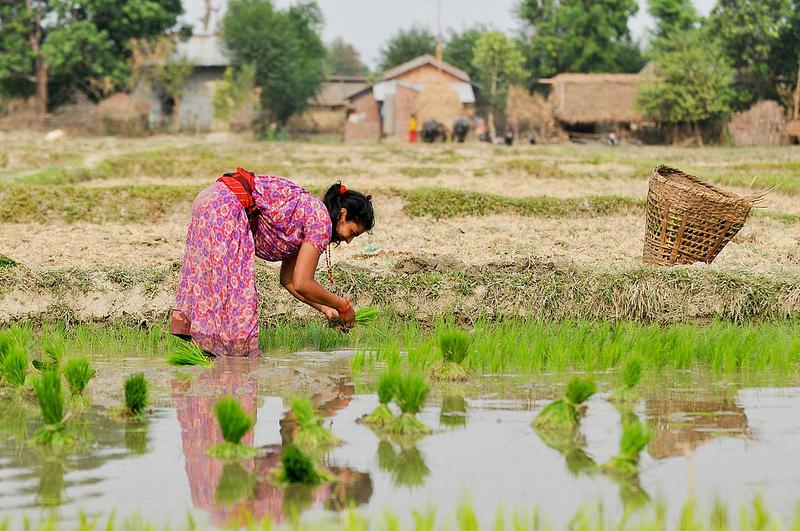
A study has revealed that rice and sugarcane are among the most vulnerable crops in Nepal. Photo: N. Palmer (CIAT)
To address the impact of climate change on three of the most vulnerable, yet economically important crops in the Terai - rice, maize and sugarcane - the International Finance Corporation group has launched a four-year project: Promoting Climate Resilient Agriculture Project in Nepal.
Our partner organisation, Practical Action Consulting, is working to implement the project of the International Finance Corporation. Practical Action Consulting will replicate the techniques that CCAFS has used in existing climate-smart villages in Rupandehi and Nawalparasi districts of Nepal to establish similar villages in five other districts of Nepal: in Parsa, Chitwan, Morang, Sarlahi, and Jhapa.
To implement this project, CCAFS South Asia will provide technical and knowledge inputs on setting up climate-smart villages. As the project aspires to involve the private sector, Practical Action Consulting will work closely with leading agriculture firms dealing with rice, sugarcane and maize.
This current initiative aims to go beyond just making smallholder farming resilient to climate change, by linking them to markets.
The agriculture firms involved in the project, through their technical teams, dealers and extension officers, will work with 15,000 farmers and encourage them to adopt climate resilient agricultural practices through intensive trainings and demonstrations on the climate-smart village model during the project period from 2013 to 2017.
Training-of-trainers - spreading the word
Extension officers from the agriculture firms will be invited for a training-of-trainers session on climate-smart interventions, covering key crops. In turn they will train farmers on what they've learned.
These extension officers plan to conduct 500 trainings for rice, maize and sugarcane farmers in the course of the entire project period. Three training manuals will be developed in English and Nepali, with support from a climate change adaptation specialist, adult learning specialist, incorporating the findings from ongoing climate-smart villages in South Asia.
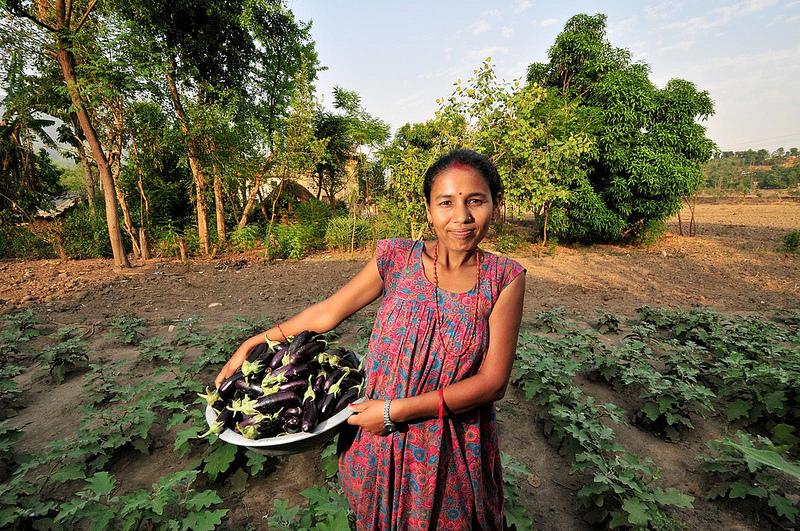
Addressing challenges SPecific for women farmers is central to the success of the climate-smart village project. (Photo: N. palmer)
In Nepal, nearly 60 percent of the agricultural workforce comprises women and the project aims to ensure gender diversity and address the specific challenges that women farmers face in adapting to climate change. CCAFS Gender and Climate Change Manual for South Asia will be used extensively as a resource material for developing training manuals on rice, maize and sugarcane to emphasise the differentiated impact that climate change has on men and women.
Demonstration plots - learning by doing
Demonstration plots within the agriculture firms will serve as learning centres for not only farmers covered under the project but also for other farmers based in nearby villages. Farmers can increase their level of technical expertise through learning-by-doing techniques.
This new initiative to scale-up climate-smart villages will not stop merely with training farmers on climate resilient practices, but will engage the private sector and industry and link them to climate smart farmers. The idea is that these partnerships will extend beyond the life of the project and provide small-holder farmers access to markets in the long-term.
Gopal D Bhatta is a Climate Change Consultant for South Asia, Reema Shrestha is a Project Development Officer at Practical Action Consulting, based in Kathmandu, Nepal, and Pramod K Aggarwal is the Regional Program Leader of CCAFS South Asia.

